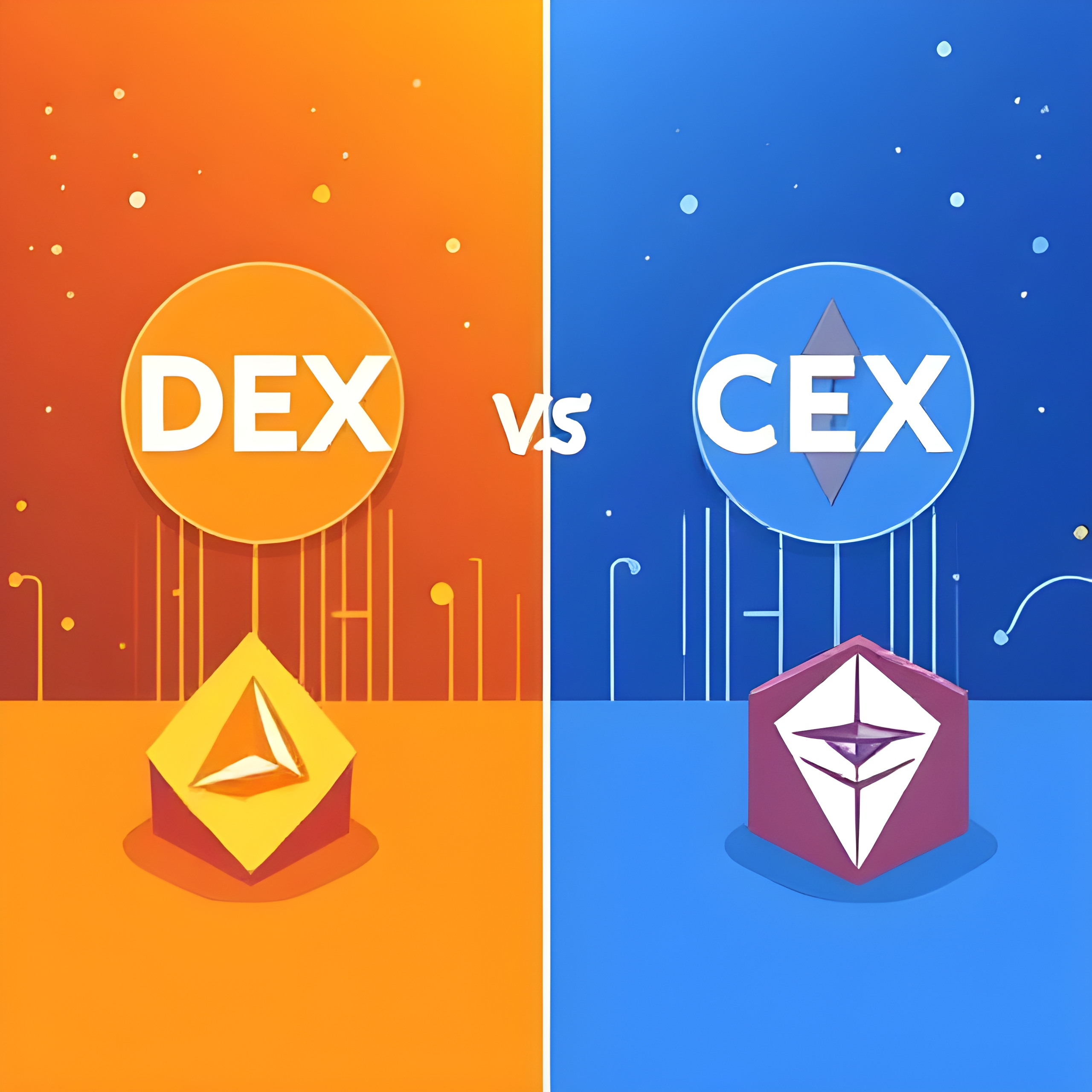DeX vs. CeX: Understanding Centralized vs. Decentralized Crypto Exchanges
In the rapidly evolving landscape of cryptocurrency, choosing the right exchange for your trading needs is crucial. Two primary types dominate the market: Centralized Exchanges (CeX) and Decentralized Exchanges (DeX). While both facilitate the buying and selling of digital assets, they operate on fundamentally different principles, impacting everything from security and privacy to user experience and control.
Understanding the nuances between DeX and CeX is vital for any crypto enthusiast, investor, or trader. This guide will break down each type, highlight their pros and cons, and provide a clear comparison to help you make an informed decision based on your priorities.

What is a Centralized Exchange (CeX)?
A Centralized Exchange (CeX) operates much like a traditional stock exchange. It is run by a central authority or company that facilitates transactions between buyers and sellers. When you deposit funds onto a CeX, you transfer custody of your assets to the exchange. They hold your private keys and manage your funds on your behalf.
Pros of CeX:
- Ease of Use: User-friendly interfaces, often resembling traditional financial platforms, make them ideal for beginners.
- High Liquidity: Due to their large user bases, CeXs typically offer high trading volumes and liquidity, leading to quicker order fulfillment and better prices.
- Fiat On/Off-Ramps: Most CeXs allow direct deposits and withdrawals of fiat currencies (USD, EUR, etc.), making it easy to enter and exit the crypto market.
- Customer Support: They usually provide customer support channels, which can be invaluable for troubleshooting issues.
- Advanced Features: Offer features like margin trading, futures, lending, and staking.
Cons of CeX:
- Security Risks: Being centralized, they are honeypots for hackers. If the exchange is compromised, your funds are at risk (e.g., Mt. Gox, FTX).
- Lack of Custody: You don't hold your private keys, meaning you don't have full control over your assets ("Not your keys, not your crypto").
- KYC/AML Requirements: Most CeXs require Know Your Customer (KYC) and Anti-Money Laundering (AML) checks, which involve submitting personal identification. This impacts privacy.
- Censorship/Control: A central authority can freeze or restrict accounts, and transactions can be reversed.
- Single Point of Failure: The entire system relies on the central entity, making it vulnerable to regulatory pressure or operational failures.
What is a Decentralized Exchange (DeX)?
A Decentralized Exchange (DeX) allows users to trade cryptocurrencies directly with each other, peer-to-peer, without the need for an intermediary. Transactions are facilitated by smart contracts on a blockchain. With a DeX, you always retain custody of your private keys and your funds.
Pros of DeX:
- Self-Custody: You maintain full control over your private keys and assets, eliminating counterparty risk.
- Enhanced Privacy: Generally, DeXs do not require KYC/AML checks, offering greater anonymity.
- Censorship Resistance: Being decentralized, they are less susceptible to government interference or shutdown.
- Transparency: All transactions occur on a public blockchain, offering a high degree of transparency.
- Reduced Hacking Risk: There's no central honeypot of funds for hackers to target.
Cons of DeX:
- Complexity: Can be less intuitive and more challenging for beginners, requiring familiarity with wallets and blockchain interactions.
- Lower Liquidity: Often have lower trading volumes compared to CeXs, which can lead to higher slippage and slower order execution.
- No Fiat On/Off-Ramps: Typically do not support direct fiat deposits or withdrawals, requiring users to first acquire crypto on a CeX or through other means.
- Limited Features: May offer fewer advanced trading features like margin trading or lending compared to CeXs.
- Transaction Fees (Gas Fees): Users pay network (gas) fees for every transaction on the blockchain, which can be high during network congestion.
.jpg)
DeX vs. CeX: A Side-by-Side Comparison
| Feature | Centralized Exchange (CeX) | Decentralized Exchange (DeX) |
|---|---|---|
| Custody of Funds | Exchange holds your private keys (not self-custodial) | You hold your private keys (self-custodial) |
| KYC/AML | Required | Generally not required |
| Security Risk | Central point of failure, hacker target | Smart contract risk, less honeypot risk |
| Liquidity | High | Often lower, but growing |
| Ease of Use | High (beginner-friendly) | Moderate to Low (requires more technical understanding) |
| Fiat Support | Yes (on/off-ramps) | Rarely, typically crypto-to-crypto |
| Transaction Speed | Very fast (off-chain matching) | Dependent on blockchain confirmation times |
| Fees | Trading fees, withdrawal fees | Gas fees for every on-chain interaction |
| Censorship Resistance | Low (accounts can be frozen) | High (peer-to-peer, blockchain-based) |
Conclusion: Choosing Your Exchange
The choice between a DeX and a CeX ultimately depends on your individual priorities and experience level.
- If you prioritize ease of use, high liquidity, fiat on-ramps, and advanced trading features, a Centralized Exchange (CeX) like Binance, Coinbase, or Kraken might be suitable. Be mindful of the custodial risk and KYC requirements.
- If your main concerns are self-custody, privacy, censorship resistance, and true decentralization, then a Decentralized Exchange (DeX) such as Uniswap, PancakeSwap, or SushiSwap would be a better fit. Be prepared for a steeper learning curve and potential liquidity challenges.
Many experienced crypto users leverage both types of exchanges, using CeXs for fiat conversions and initial purchases, and then transferring assets to DeXs or self-custodial wallets for more control and DeFi interactions. By understanding the distinct advantages and disadvantages of each, you can navigate the crypto market more effectively and securely.
Stay informed and trade responsibly!